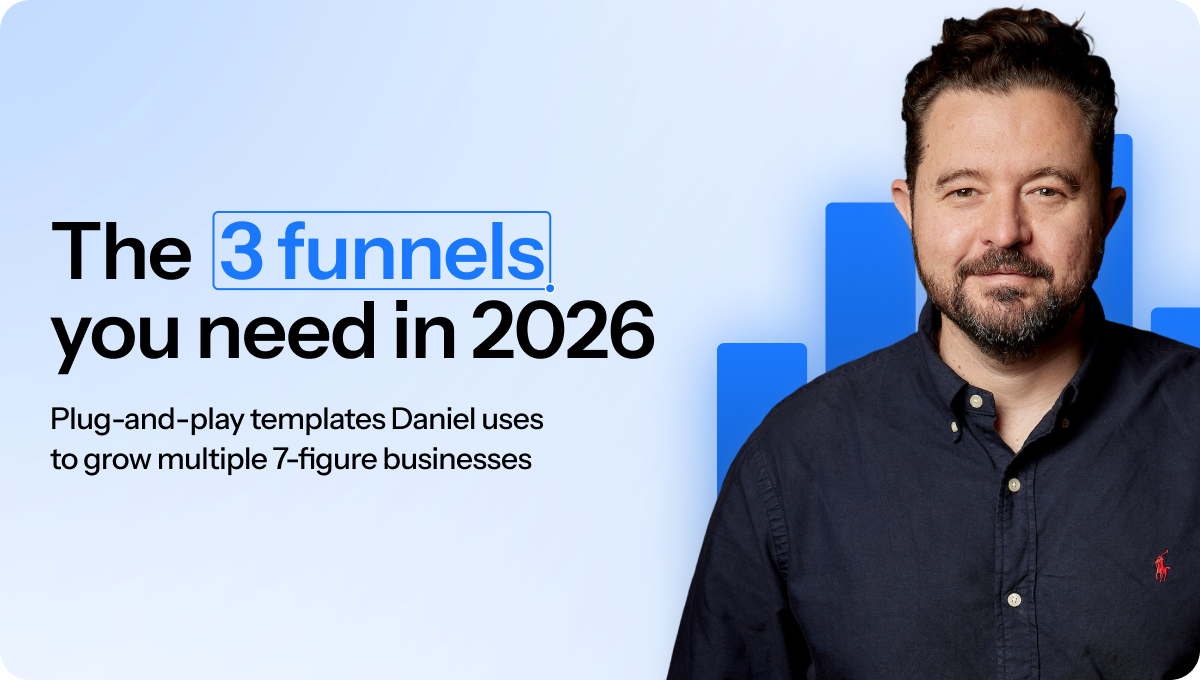Create Epic Online Quizzes Using the Self-Perception Theory


Quizzes. We love quizzes at ScoreApp, and we love the results they get for clients looking to improve the effectiveness of their sales funnel.
There’s a reason why quizzes are such powerful lead magnets, though, and it’s not just because they’re a fun distraction to unsuspecting leads. It all comes down to a bit of buyer psychology known as self-perception theory.
In a nutshell, self-perception theory states that we use our own behaviors to examine our attitudes. That we see ourselves and understand our feelings better thanks to our responses in any given situation.
That means that when someone takes a ScoreApp quiz, they have the chance to reflect on their behaviors, their opinions, and their needs. Armed with that knowledge, they can form a clear picture of what they want, and how they are going to get it. And when they’re presented with the right offer, they’re primed to take it.
But there’s more to learn for anyone interested in the psychology of purchase decisions. That’s why we’ve put together this blog post, to help you understand self-perception theory, and how you can leverage the psychology of buying with ScoreApp.
We’ll be looking at:
- A more detailed history and explanation of self-perception theory, and how it applies to your lead’s decision-making process.
- How ScoreApp quizzes harness self-perception theory and other buyer psychology tenets to grab leads.
- How you can use ScoreApp quizzes (and self-perception theory) to gently influence behaviors with the psychology of sales.
We’ve got a lot to get through, so let’s get started with the big question:
What is self-perception theory, and why does it matter in marketing?

Developed by psychologist Daryl Bem, self-perception theory shows that we form opinions and attitudes about ourselves by examining our actions. In terms of buyer psychology in marketing, anybody who completes a set of quiz questions uses their answers to nail down what it is they need. The act of answering the quiz gives clarity to preferences, struggles, and goals. And when a lead better understands themselves, they’re more likely to make a purchase that supports their needs.
That’s how you can use self-perception theory and the psychology of sales to influence potential buyers.
How quizzes apply self-perception theory to influence buyers

Okay, so ‘influence’ is a bit of a loaded word. Especially when we’re talking about using buyer psychology to increase sales.
In the interest of reassurance, we should say that we’re not talking about brainwashing, coercion, hypnosis, subliminal messaging, or any sort of Jedi mind trick. What we are talking about is a way to guide leads to a conversion, to ultimately help their business. It’s totally ethical, completely above board, and not in the least bit sinister.
For example, someone taking a business growth quiz could see by their answers that they’re struggling in lead generation. Once that’s understood, they will look for a better way of attracting customers, and they’re likely to invest in a tailored solution when it’s offered to them.
So, with that in mind, let’s look at the ways a ScoreApp quiz and self-perception theory work together to nurture leads and increase your conversions.
1. Quizzes help people recognize their challenges and goals
The truth is, many people won’t fully understand the issues and challenges that are holding them back until they’re forced to examine them more closely. That’s where a quiz comes in.
A well-structured quiz can ask the right questions, guiding users toward ‘aha!’ moments that clarify the problems they need to overcome. Use ScoreApp data to identify common pain points within the target demographic and build your quizzes around them.
For example, a quiz focused on ‘How Ready Is Your Business To Scale?’ will explore their current marketing, revenue, and systems. Once the lead has answered, they’ll know whether they’re ready to accept expert help.
With that realization reached, thanks to self-perception theory, you can follow up with personalized nurturing sequences that move leads down the sales funnel toward a conversion. Like we said, it’s nothing sinister, just a nudge in the right direction.
2. Quizzes create a sense of ownership of the problem

It’s not enough to tell someone they have an issue that needs solving. As with most issues we face in life, the best results come when we come to our own realizations and take ownership of the problem.
A ScoreApp quiz uses self-perception theory and buyer psychology to bring leads to that conclusion. Once they’ve created ownership of their struggles, they’re far more open to the solutions put before them.
Use your quiz questions to probe at potential weaknesses, whether in finance, scalability, or any other area you’re equipped to help. Any answer that acknowledges a lack of direction or clarity is your invitation to step in with a consultation, resource, or tool. Any of these options will strengthen your relationship based on the results they need and you can provide.
3. Quizzes reinforce identity-based decision-making
Everybody sees themselves in a particular light, and it always influences how they act. A quiz can help shape and reinforce that identity, adding new facets and highlighting others.
A personality quiz is a particularly versatile tool for that reason, using the psychology of sales to nudge leads to decisions based on their self-image.
Take, for example, a ScoreApp quiz designed to find your fitness personality. When someone completes the quiz and sees they’re a highly motivated beginner, they’ll acknowledge that identity. What’s more, they’ll be more comfortable signing up to a coaching program designed for their level. It demystifies where the lead stands, and which of your offerings they should be investing in.
How to use self-perception theory to create high-converting quiz questions

That’s how self-perception theory works with a ScoreApp quiz—how it can steer a lead to a purchasing decision. But it only works if you’re asking the right questions. That’s the key to increasing conversions with the psychology of sales and self-perception theory.
When thinking up questions, you need to keep a few things in mind:
- Does it encourage the lead to think about their behavior and open the door for your solution? Get specific to prod the reader toward something you can market them.
- Your response options should guide the lead to self-discovery. Simple yes/no answers aren’t going to cut it, not when you can relate to their issues more. Speak to their pain points with answers like ‘I [do X], but don’t have a system in place’ or ‘I rarely [do X], and I know it’s hurting my business.’ The difference in mirroring the lead’s feelings and perception is huge.
- Use results to positively reinforce the next steps. Present opportunities rather than passing judgment. If the lead can see that change is possible, and how it can happen for them, they’ll be encouraged to take action.
Using ScoreApp quizzes to make selling with self-perception theory easy

Now you know how self-perception theory works, you might be wondering how to apply it to your quizzes and marketing. You’ll be relieved to know, then, that ScoreApp takes care of the heavy lifting for you. In fact, ScoreApp quizzes have been built to make it as easy as possible to harness the buyer psychology of purchase decisions.
How so? Well:
- ScoreApp’s smart scoring system segments leads. That means every lead gets highly personalized insights based on their responses.
- These custom quiz results give leads a chance to self-identify their challenges. After they’ve done that, they’ll be more open to seeing the value in taking action.
- Follow-up engagement can be automated, meaning users are taken by the hand and nurtured along the sales funnel after they’ve received their results.
It’s true that people don’t often like being sold to. Using quizzes and self-perception theory is a way to turn that around, because it’s also true that we love a journey of self-discovery.
A ScoreApp quiz gives leads the opportunity to shape their own perception, to recognize the challenges that are holding them back, and what they need to move forward. Once they see those things in themselves, they’re more likely to accept your answers.
Last but not least, you can create your influential ScoreApp quiz in minutes. Try ScoreApp for free today, and guide your leads to the next step with ScoreApp quiz templates.



